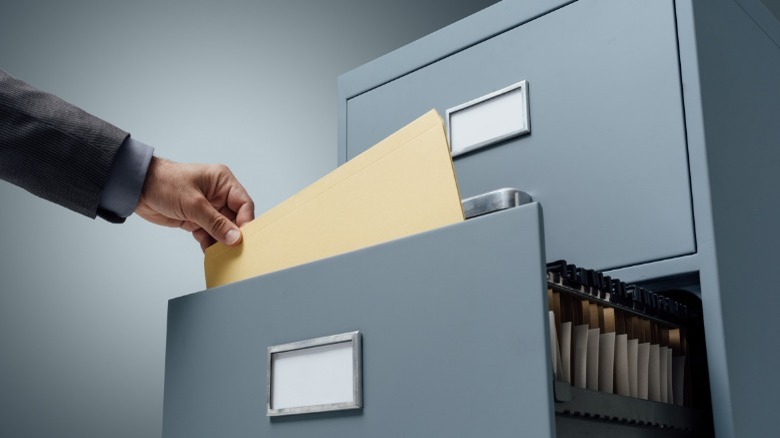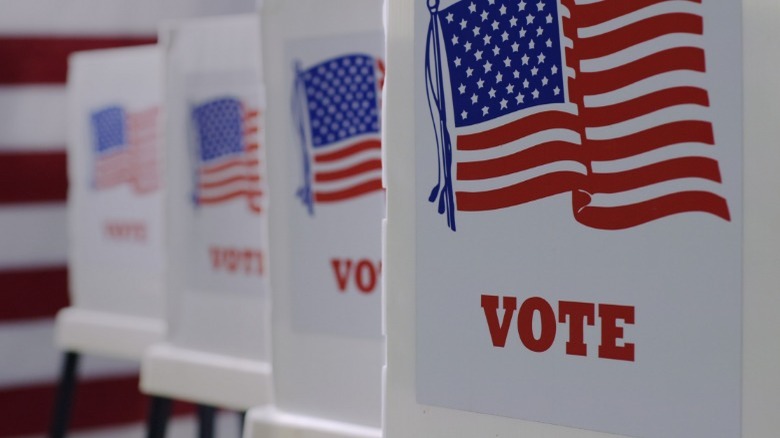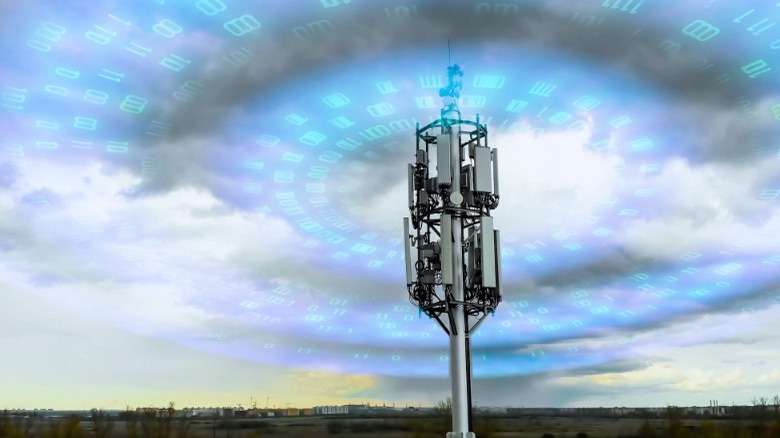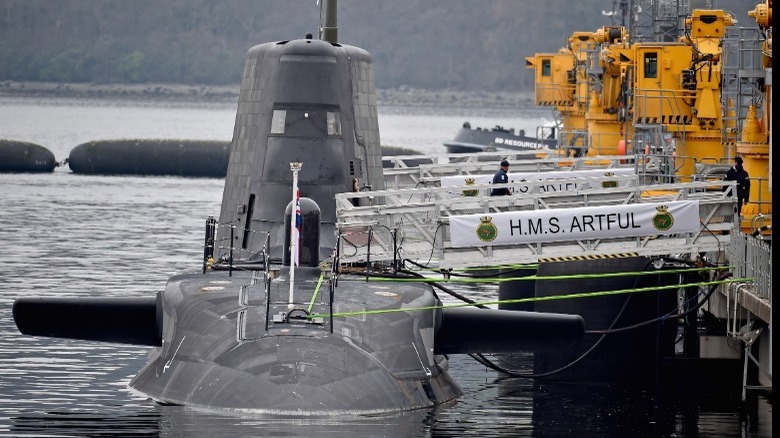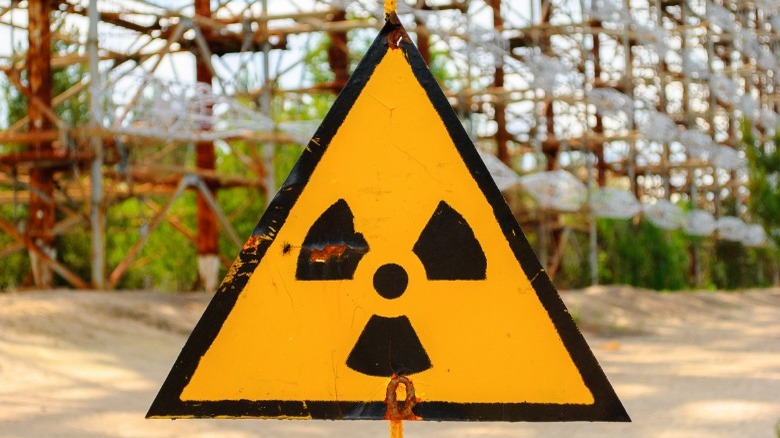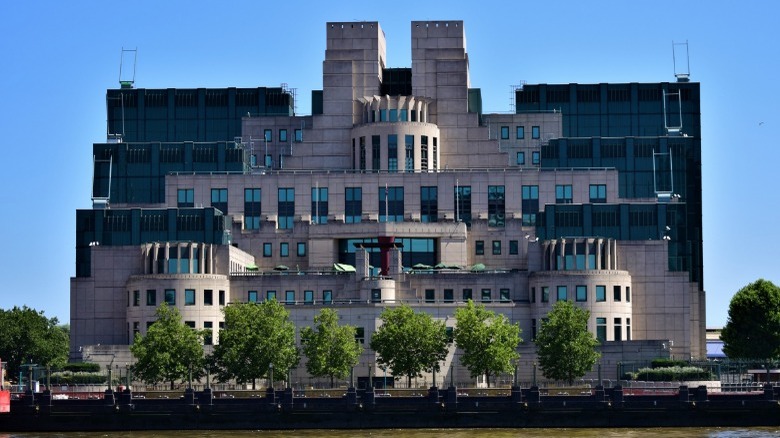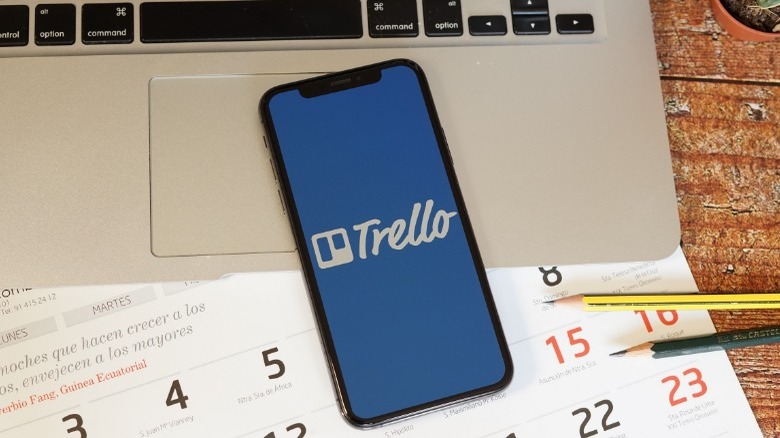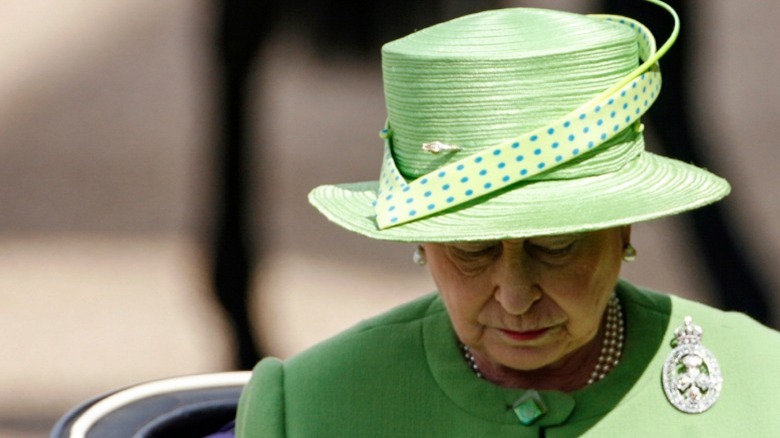The Biggest Government Secrets That Were Accidentally Made Public
It is no revelation to say that governments around the world keep a lot of secrets. When these secrets are no longer a matter of national security, they are typically declassified and released to archives and the press. For example, in September 2019, Britain's MI5 released over 100 formerly top-secret files to the National Archives. The files concerned everything from the First and Second World War to the Portland Spy Ring case of the late 1950s and early 1960s.
Such document releases are customary in the United States, too, and they sometimes come at the behest of those in government. On February 10, 2022, Senator Ron Wyden reported that he and Senator Martin Heinrich had requested the declassification of a CIA report by the Privacy and Civil Liberties Oversight Board. The document's release showed that the Central Intelligence Agency has been collecting citizens' private information in bulk, which Wyden said revealed "serious problems associated with warrantless backdoor searches of Americans."
However, despite the transparency of initiatives such as the Freedom of Information Act, not all government disclosures are intentional. Sometimes, the most basic of mishaps have disclosed highly classified information related to war, terrorism, and the machinations of democracy. Here are some of the biggest government secrets that were accidentally made public.
Australian government secrets sold in secondhand cabinets
In January 2018, the Australian Broadcast Corporation (ABC) reported that a trove of highly-classified Australian government files were found in two filing cabinets that had been sold by a secondhand store in Canberra, the nation's capital. ABC explained how the cabinets, which had been sold for just $10 each, sat for months in a dusty shed outside Canberra, fastened shut with padlocks. However, when the new owner – an unnamed outdoorsman – took a drill to the padlocks, he discovered scores of documents that had first-hand accounts of the Howard, Rudd, Gillard, and Abbott governments.
The vast majority of the documents were classified, with some marked "top secret" or "AUSTEO," which stands for Australian eyes only. As the outdoorsman read the material, he noticed several instances of politicians declaring one thing and doing another, so he passed the documents to ABC's Michael McKinnon, a journalist known for advocating government transparency.
After careful consideration, McKinnon published numerous revelations. For example, Tony Abbott's government considered banning anyone under 30 from receiving unemployment benefits. Also, John Howard's coalition, which governed from 1996 until 2007, gave "serious consideration" to removing citizens' right to remain silent when questioned by police. Alarmingly, another document disclosed that the Australian Federal Police (AFP) lost nearly 400 national security files in five years. McKinnon said, "I remember looking at these documents and thinking this is the real deal ... it was clear to me there was a public interest in the public knowing this material."
A British civil servant left secret Al-Qaeda files on a train
On June 11, 2008, the BBC reported that an unnamed Cabinet Office employee had left two reports on a train that contained top-secret intelligence on Al-Qaeda. It came to the press's attention when a member of the public found the documents and handed them to the BBC, who in turn gave them to the police. The reports discussed analysis made by the Joint Intelligence Committee, one on Iraq's security forces — which security correspondent Frank Gardner described as "damning" — and another titled "Al-Qaeda Vulnerabilities," a highly classified document commissioned by the Foreign Office and the Home Office. The latter, a 7-page document, was marked, "for U.K./U.S./Canadian and Australian eyes only," and was speculated to contain information useful to Britain's enemies.
Political figures were quick to express their frustration. Then chairman of the Home Affairs Committee Keith Vaz said, "Such confidential documents should be locked away ... they should not be read on trains." An inquiry determined that Richard Jackson, a senior civil servant, was guilty of breaching the Official Secrets Act and fined £2,500 (via The Guardian).
Jackson described how he had felt "physically sick" after realizing his mistake which, according to the court hearing, "had the potential to damage national security and U.K. international relations." One consolation for Jackson was that he wasn't the only civil servant making such mistakes. In November 2007, discs containing child benefit records of 25 million people were lost. Just weeks later, in January 2008, a naval officer lost the details of 600,000 prospective recruits.
191 million U.S. voters exposed
In December 2015, Reuters reported that personal information of some 191 million U.S. voters was leaked online. Researcher Chris Vickery discovered the exposure as part of a data security investigation, which he hoped would raise awareness about data security practices. Vickery was described by Forbes as a white-hat hacker, which is defined by Kapersky as an individual who uses their skills to identify cybersecurity weaknesses rather than exploit them.
In 2015, there were 242 million people aged 18 and over living in the United States (via US Census Bureau). That means that the monumental leak exposed the details of roughly 79% of those eligible to vote. In fact, Thomas Brewster of Forbes wrote, "It would appear every registered U.S. voter is included in the leak." The details of the leak were fairly sweeping, including names, addresses, birth dates, party affiliations, phone numbers, and emails. Vickery said that it was, "alarming that the information is so concentrated," pointing out the database could be trawled by fraudsters looking for batches of potential targets.
Despite the size of the leak, it is unclear who is responsible for the database's creation and its exposure. CSO Online and Databreaches.net suggested that the information came from software provider NationBuilder, but CEO Jim Gilliam announced that his organization had not created the database, although he conceded that, "it is possible that some of the information it contains may have come from data we make available for free to campaigns."
American soldiers accidentally leak nuclear secrets via study apps
In May 2021, Bellingcat reported that American soldiers stationed in Europe had accidentally leaked nuclear secrets on study apps such as Chegg, Quizlet, and Cram. The soldiers use these apps for their flashcard function, which allowed them to rehearse the strict and complex security protocols (via DW). The presence of U.S. nuclear weapons within European borders has been leaked before, but the information, leaked in photographs, documents, or off-hand comments, was usually broad and limited in detail. The leaks in May 2021, however, disclosed not just the presence of American nuclear weapons but their quantity, their location, and whether the weapons stored were "hot" (live) or "cold."
Bellingcat published images of the flashcards, some of which had been visible online since 2013. One notable exposure was the Volkel Air Base in the Netherlands, which the Dutch government still considered a secret. In this particular leak, 70 Chegg flashcards disclosed that Volkel was host to 11 Weapons Storage and Security Systems (WS3) vaults, five of which were "hot."
Dr. Jeffrey Lewis said that the leak was a "flagrant breach" of security that highlighted how "these weapons are not secure." Others, however, were not so perturbed. Hans Kristensen of the Federation of American Scientists wrote, "Safety is accomplished by effective security, not secrecy," adding, "There are so many fingerprints that give away where the nuclear weapons are that it serves no military or safety purpose to try to keep it secret."
Journalist received mysterious documents about 'psychoelectronic weapons'
"Pyschoelectronic weapons" sound like the stuff of James Bond, yet when Curtis Waltman of MuckRock filed a Freedom of Information Act request to Washington State Fusion Center (WSFC), the journalist received documents about these mysterious weapons (via Yahoo!). This was curious, as Waltman was inquiring about clashes between Antifa and the far right, not experimental weapons.
The zip file, named "EM effects on human body.zip," contained thorough diagrams showing the apparent effects of "psychoelectronic weapons," which included everything from "muscle quaking" to "forced orgasm." The weapons could also inflict "all-body pain," "sleep prevention" and overwhelming itching sensations. Strangest of all were the psychological effects. Victims could expect to suffer "controlled dreams" and a sensation described as "irresistible 'go here, go there' commands." Another document concerned mind control using cell phones and phone networks.
Needless to say, Waltman was perplexed by this content. What his request about Antifa and far-right groups had to do with these fanciful weapons remains unclear, as the Washington State Fusion Center (WSFC) did not provide further information, prompting suspicion that the document was sent in error.
It was not the first time that the U.S. government had disclosed a fanciful weapons project. According to All That's Interesting, the U.S. military considered implementing a "gay bomb," which was envisioned as a chemical weapon that would, "[cause] units break [to] down because all their soldiers became irresistibly attractive to one another."
Nuclear submarine secrets published by the U.K. government
On April 19, 2011, the Guardian reported that the Ministry of Defence (MOD) had published secrets about the U.K.'s fleet nuclear fleet on its website. The information included a detailed analysis by Commodore Andrew McFarlane, who had analyzed the fleet's ability to withstand a serious accident, concluding that existing reactors were "potentially vulnerable." Furthermore, the leak also shared measures taken by the U.S. Navy to protect its respective fleet.
The MOD didn't simply upload secret information. The compromising information was part of a larger document, so the secret passages were blacked out, or so they thought. It soon became apparent that the text could be revealed by copying and pasting the document into a separate word processor.
In response to the blunder, Conservative MP Patrick Mercer said that Britain's enemies would find the information "hugely interesting," adding that the mishap was "potentially catastrophic." An MOD spokesperson said that they were "grateful" to the journalist who flagged the issue, assuring readers that, "we took steps to ensure the document was removed from the public domain and replaced by a properly redacted version ... we are doing everything possible to prevent a recurrence of this."
U.S. government releases 'highly confidential' list of nuclear sites
Barack Obama had been president for just over five months when the Government Printing Office published a 266-page report about the nation's nuclear program (via New York Times). The report featured maps displaying exact locations of stockpiled fuel used to launch nuclear warheads. The majority of its pages were marked, "Highly Confidential Safeguards Sensitive."
President Obama had delivered the report to Congress on May 5 for their inspection and possible revision, but instead, the document was published on the Government Printing Office's website in draft form. No explanation was given for this action, which was retracted soon afterward. The report focused on the nuclear weapons laboratories in Los Alamos, Livermore, and Sandia, as well as numerous other nuclear sites, such as the Oak Ridge National Laboratory in Tennessee. According to the document, Building 9720-5 in the Oak Ridge complex is home to highly enriched uranium that is designated for "long-term storage."
Reaction to the exposure was mixed. MIT professor John M. Deutch said that "These screw-ups happen," adding, "It's going further than I would have gone but doesn't look like a serious breach." However, denuclearization specialist David Albright said that the leak, "can provide thieves or terrorists inside information that can help them seize the material, which is why that kind of data is not given out."
Over 1,000 U.K. government laptops were lost or stolen
In March 2008, a few months before Richard Jackson would leave the top-secret Al-Qaeda documents on a London train, it was revealed that over 1000 laptops had gone missing in various departments of the British government (via The Guardian). Alarmingly, the Ministry of Defence, a department central to the nation's security, was found to be the most negligent, losing some 503 laptops and 23 personal computers between 1998 and 2008. Hundreds more laptops were lost by the Department of Health, Ministry of Justice, and Her Majesty's Revenue and Customs. These dire figures were compounded by the exclusion of figures from the Home Office, Foreign Office, Department for Transport, or Department for Business, which suggested that the losses could be even higher.
It is unclear how many were lost and how many were stolen. One of the most notable losses occurred in March 2000, when a drunken MI6 lost a laptop containing secret information during a boozy visit to a London tapas bar, according to the Independent. Fortunately, the laptop was covered two weeks later.
Sarah Teather of the Liberal Democrats lamented the Labour party's "disgraceful history of recklessness with citizens' data," while Scottish National Party spokesman Mike Weir said, "What we need to know is exactly how many have gone missing, what is on the laptops and why there has been no government policy stopping people downloading information and taking it with them."
British government leaks counter-terrorism tools on Trello
Trello is a useful tool that allows teams to structure and collaborate on tasks using kanban-style "boards." Typically, these boards are set to "private." However, they can also be set to "public." This is what the British government did back in 2018. By using the "public" setting en masse, hundreds of confidential government paperwork could be found by a simple Google search, according to ITPro.
That is because "public" boards are allowed to be indexed by search engines, meaning that while the government set their Trello boards to "public" mode, their business was only a few key search terms away from exposure. The leaked information included anti-terrorism documents and instructional texts about procuring entry passes for government buildings. Names, phone numbers, and email addresses of senior civil servants were exposed, too. Also, it was alleged that servants' calendar appointments became accessible, which could have enabled malicious agents to follow day-to-day schedules at will.
When the weakness was identified, the government said that it took data protection "very seriously," adding that, "The Government Digital Service and Trello are working with government departments to ensure any data breached is made secure. Trello has offered to make all government accounts private, to ensure data is better protected in the future."
The plan for when the Queen dies leaked to the press
It may not be a matter of national security, but in September 2021, Politico magazine obtained documents that explained in "granular" detail what will happen when the Queen dies. Dubbed "Operation London Bridge," the Queen's death will be followed by phone calls to the prime minister, the cabinet secretary, and numerous other high-ranking officials. Custom requires that the prime minister be informed of the Queen's death by the monarch's private secretary. Soon after, the royal household will notify the British public via an "official notification." Then, after emails of her death have reached all senior staff, flags across Whitehall will fly at half-mast.
The Queen's death will be referred to as D-Day, which will be followed by nine further days of procedures and protocols. The monarch's funeral will be held at Westminster Abbey on D+10, and two minutes' silence will be held nationally at midday. After a service at St. George's Chapel at Windsor Castle, Queen Elizabeth will be buried in King George VI Memorial Chapel.
The lengthy details of Politico's disclosure were followed by another in April 2022, which left the Welsh government somewhat red-faced. According to Nation Cymru, a Welsh government official emailed content marked "official sensitive" to a member of the public, prompting an inquiry. BBC analyst Mark Palmer wrote that while the leaked pamphlet did not detail any operational material, it was of "official sensitive" status nonetheless and that such a leak will be strenuously avoided in the future.

